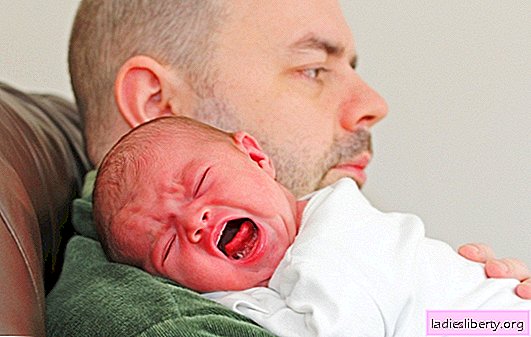
Postpartum depression interferes with the normal emotional development of children. According to a study published in the JAMA magazine, daughters suffer mainly from their father’s depression.
How common is postpartum depression?
Postpartum depression does not occur only in mothers. 1 out of 20 fathers are struggling with new family circumstances. 20% develop clinical signs of depressive disorder.
Previous studies have shown that maternal depression can be transmitted to children. Psychologists attribute this to a decrease in maternal affection.
Mental disorder causes mothers to interact less with their children. Until now, it was believed that fathers play a secondary role in the development of depression in a child.
In boys, the risk of postpartum depression does not increase?
The results, presented by a team of scientists from Cambridge University, proved the social role of the father in depressed children. Psychiatrists have evaluated these children since the 1990s.
8 weeks and 8 months after the birth, 3,176 mothers and fathers completed the postpartum depression questionnaire.
Children were examined for depression at the age of 18 years with a revised schedule of clinical examinations.
Scientists have found that teenage girls are more likely to suffer from depression when their father had postpartum depression. In boys, such a relationship with paternal depression has not been proven in any study.
How is father’s depression related to his daughter’s risk of depression?
The reason for this special role of the father in the emotional development of daughters is unclear. Since fathers were not re-examined for depression, a mental disorder could affect daughters in later stages of development. What specific aspects of the relationship between father and daughter exist are still unclear.
Further analysis shows that maternal depression explains the relationship between postpartum depression of father and daughter. Disorders in the social behavior of children who were examined at the age of 42 months can explain 7.5% of cases.
Conflicts between parents and father’s involvement in caring for a child did not matter.
When the child was 18 months old, mothers were asked how many fathers were involved in the education.
Ramchandani admits that the study examined only a few aspects of family life. The psychiatrist suggests that depression in fathers leads to increased stress levels throughout the family.
Ruined family life in the future is the cause of depression in adolescents. Why girls react more sensitively is not clear here.
In previous studies, a scientific team found that postpartum depression in fathers negatively affects children's behavior and their emotional development.
Do fathers also have postpartum depression?
Postpartum depression is more common in mothers. A JAMA study shows that even fathers can fall into an “emotional hole” after giving birth. Postpartum depression is so common that the American Academy of Pediatrics now advises mothers to get tested.
A common tool is the Edinburgh Postpartum Depression Scale, where mothers answer 10 questions about their condition. Indiana uses the simplified form (EPDS-3) in which only 3 questions are asked. Mothers usually fill out a form at the reception.
Since fathers often accompany mother and child during medical visits, experts also presented a questionnaire to fathers. Result: fathers were also present at 2946 of 9572 (30.8%) clinic visits.
They filled out a questionnaire in 806 cases (8.4%). A total of 36 fathers (4.4%) showed signs of postpartum depression. The proportion was slightly lower than that of mothers, of which 5.0% had signs of postpartum depression. The proportion of fathers in all depressions was 11.7%.
Scientists fear that postpartum depression may have a negative effect on the development of children. Therefore, experts also advise checking fathers. The American Academy of Pediatrics acknowledged the problem and published a report on the role of fathers in 2016.











